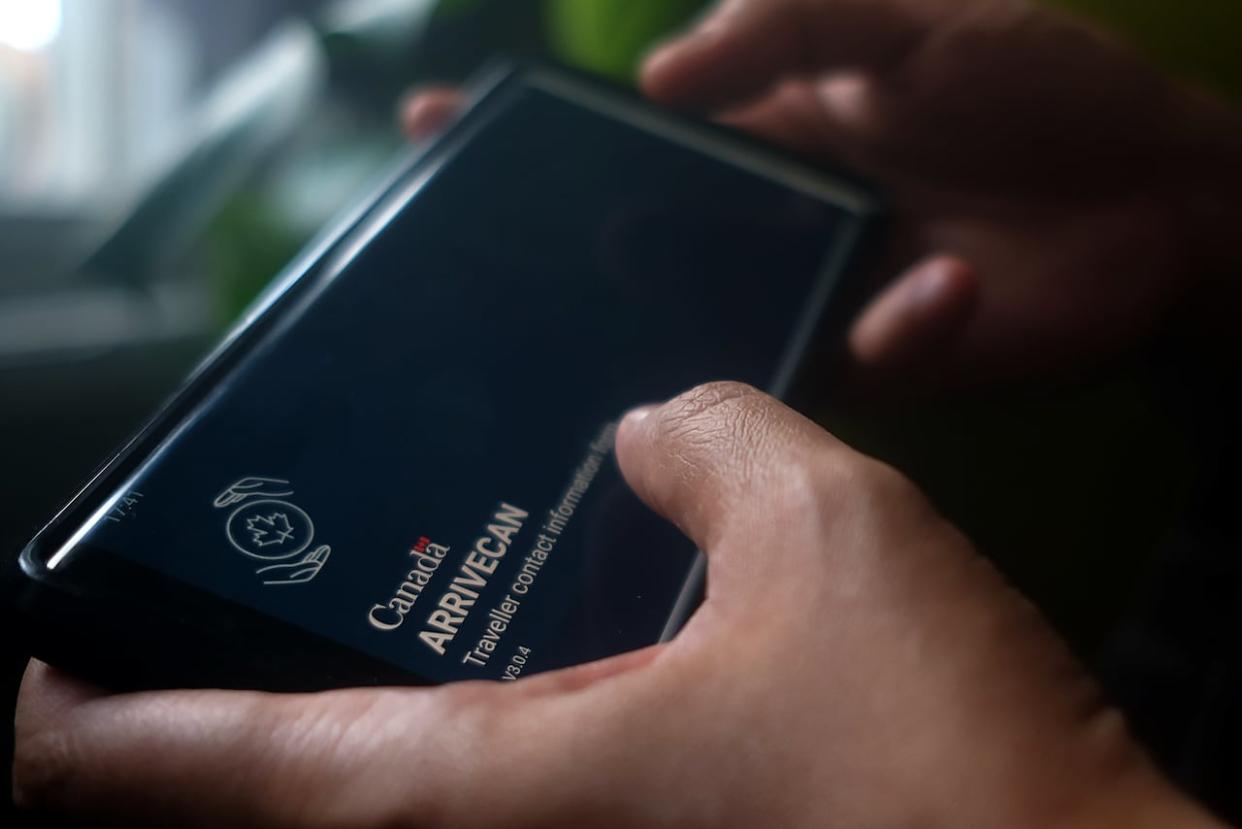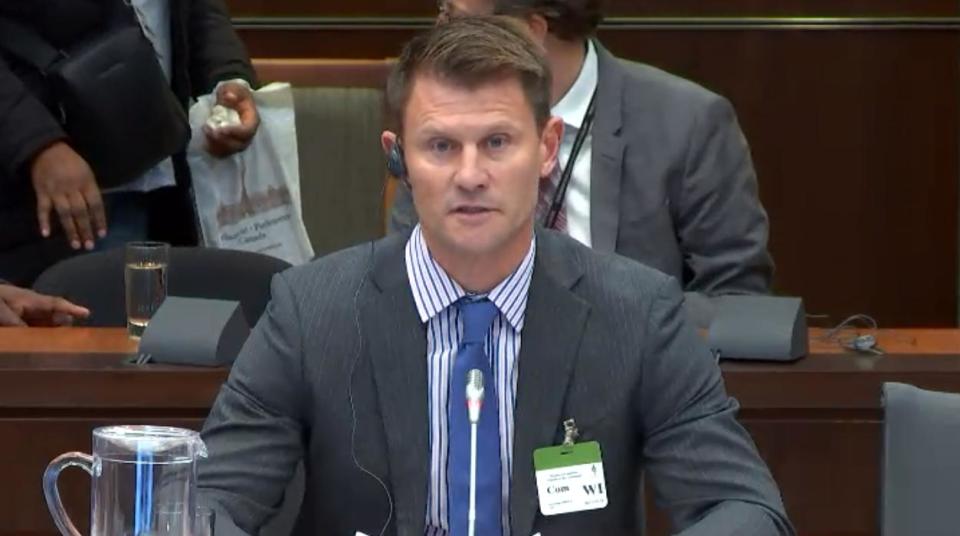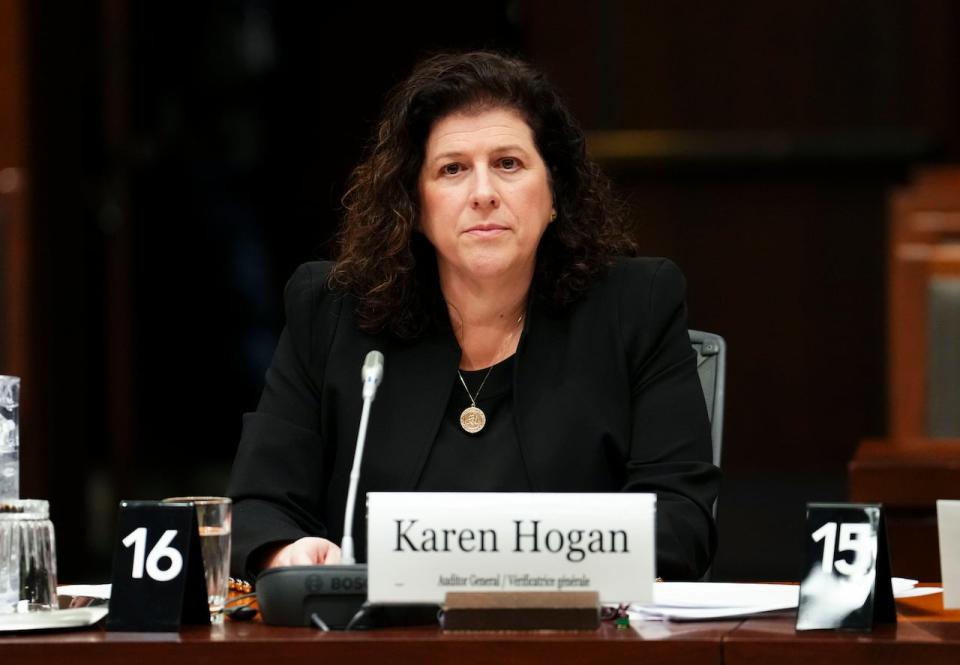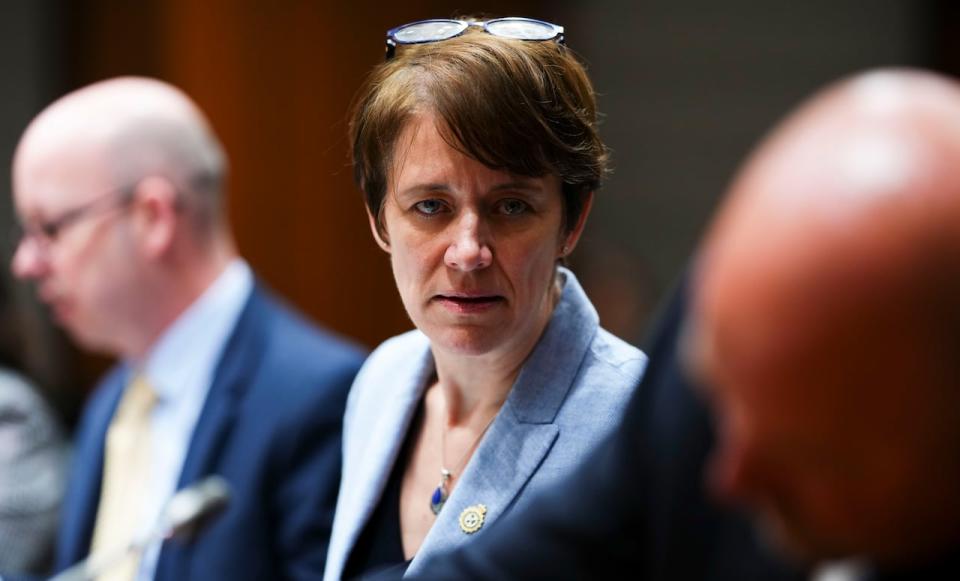What is GC Strategies? A closer look at the company linked to the ArriveCan controversy

GC Strategies, the largest contractor to work on the ArriveCan app project, is facing heightened scrutiny after the auditor general cited excessive reliance on contractors as a major factor contributing to the project's ballooning costs.
After releasing her report on the controversial project, Auditor General Karen Hogan told MPs on the House public accounts committee that the government "paid too much" for the app.
Hogan estimates the project cost at roughly $59.5 million. She also noted in her report that the total cost is "impossible to determine" due to poor financial record-keeping.
Here's what we know about the company embroiled in the ArriveCan controversy.
What is GC Strategies and what does it do?
The company is a two-person IT staffing firm that bills itself as being able to help companies navigate the federal government's procurement process.
Founded in 2015, the firm is headed by two partners, Kristian Firth and Darren Anthony.
As a staffing firm, GC Strategies acts as a go-between for the government and third-party tech companies. Firth described himself and his partner as "IT recruiters" in an appearance before the House of Commons government operation committee in October 2022.

Kristian Firth, a partner with GC Strategies, appears before a House of Commons committee on Oct. 22, 2022. (Parliament of Canada)
"We have built a very strong network of best-in-class talent, which allows us to help our clients find the team they want," he said.
For ArriveCan, GC Strategies took an initial contract from the government and subcontracted the development of the app to IT firms.
"To be clear, we did not build ArriveCan. We were approached to provide a team for consideration to fulfil certain ArriveCan requirements. We are, however, very proud of the team we gave the government of Canada, whom they managed and gave direction to throughout the project," Firth said during his committee appearance.
How much did GC get for the ArriveCan app?
It's not clear how much GC Strategies was paid for ArriveCan.
The auditor general estimates the company received $19.1 million. But that estimate only includes money paid to the company up to March of last year. Officials from the auditor general's office told CBC News on background that the company could have received payments after that date.
During his October 2022 committee testimony, Firth argued that the money the company receives from the government doesn't all stay with the company. He said some of the funds would be paid to subcontractors and the firm would keep somewhere between 15 to 30 per cent as a commission.
Hogan said in her report that GC Strategies was awarded a number of contracts in relation to ArriveCan. The company initially was given a $2.35 million sole-source contract in April 2020 and was awarded a $25 million contract in May 2022.
Both of those contracts faced heavy scrutiny by Hogan and the procurement ombud.
What did the auditor general find?
Hogan said she found little in the way of documentation to show why or how GC Strategies was chosen to work on ArriveCan.
The company was given the sole-source contract in April 2020, despite a lack of evidence that the firm had provided a proposal document for the project, the auditor general's report says. At least one other firm provided an initial proposal for the same contract, Hogan's report says.
The report indicates that the auditor general couldn't determine which government official made the final decision to select GC Strategies for the April 2020 contract.

Auditor general Karen Hogan appears as a witness at a House of Commons standing committee on Public Accounts on Parliament Hill in Ottawa on Monday, Feb. 12, 2024. (Sean Kilpatrick/The Canadian Press)
Hogan also said that GC Strategies was involved in developing requirements that were later used for the $25 million competitive contract the company received.
"In our view, flaws in the competitive processes to award further ArriveCan contracts raised significant concerns that the process did not result in the best value for money," the report says.
A January report by Alexander Jeglic, Canada's procurement ombud, found that the criteria used in awarding the $25-million contract were "overly restrictive" and "heavily favoured" GC Strategies.
Jeglic also found that GC Strategies "copied and pasted" government-listed requirements for subcontractors on numerous occasions when submitting proposals to Canada Border Services Agency (CBSA) officials.
Hogan's report also raises concerns about CBSA officials having close relationships with certain contractors, noting that the officials in question were invited "to dinners and other activities."

Canada Border Services Agency President Erin O'Gorman appears at a hearing of the House of Commons standing committee on public accounts on Parliament Hill in Ottawa on Tuesday, Feb. 13, 2024. (Sean Kilpatrick/The Canadian Press)
The CBSA has been conducting an internal investigation of the ArriveCan contracts. Agency president Erin O'Gorman told the House government operations committee in January that the investigation's preliminary findings caused her great concern.
O'Gorman said the investigation found "a pattern of persistent collaboration between certain officials and GC Strategies. They show efforts to circumvent or ignore established procurement processes and roles and responsibilities."
The CBSA said it expects the internal investigation to be completed by the summer. The RCMP was also called in last year to review the conduct of "certain employees and contractors" working with the agency, according to the auditor general.
CBC News has reached out to GC Strategies following the release of the auditor general's report but has not received a response.
How much has GC received from other contracts?
Minister of Public Services and Procurement Jean-Yves Duclos has said the government suspended all contracts with GC Strategies in November. But the total amount of money and the number of contracts awarded to the firm remains unclear.
Public Services and Procurement Canada (PSPC) told Radio-Canada that it has awarded $59.8 million in contracts to GC Strategies on behalf of other government departments and agencies.
But PSPC said that doesn't include contracts other departments awarded the company "under their own contracting authority."
Prior to 2015, Anthony and Firth were part of another small firm called Coredal, which was later amalgamated into GC Strategies. Between 2010 and 2015, Coredal was awarded a number of contracts — including one that was worth up to $2.3 million, according to the government's procurement database.

